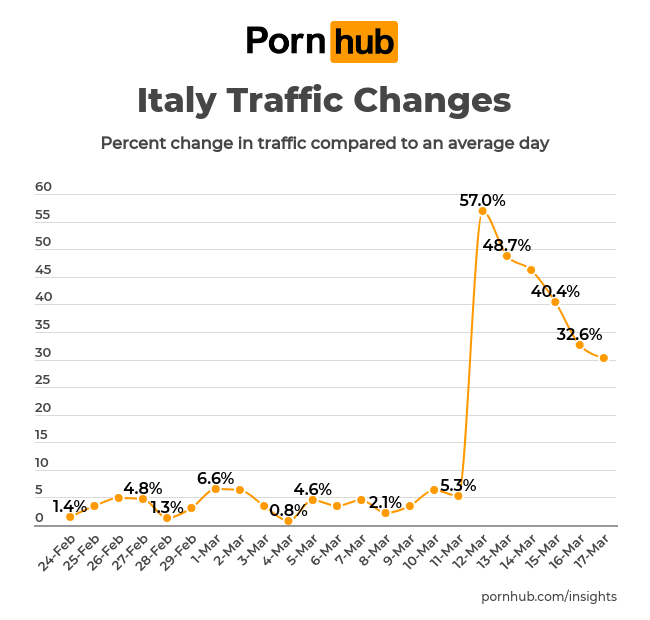How is Coronavirus affecting the IT Industry?
Due to the rapid spread of COVID-19, the World Health Organization (WHO) declared this virus a pandemic on March 11. China, one of the biggest software development hubs in the world, has been identified as the geographical source of the virus and the country with the largest population of COVID-19 patients. As a result, due to business relations alone, the global IT industry has suffered the ripple effect of China’s preventive health measures. Additionally, as each country has introduced their own temporary policies, the industry has felt the consequences on more than one level. Here are seven ways how the COVID-19 is affecting the IT industry: Most of the biggest tech brands in the world rely on Chinese manufacturing. However, since the Corona outbreak has affected this country enormously, many factories are running limited operations. This is why the tech industry is experiencing delays in shipping. Some of them have even closed their premises temporarily and stopped producing important components for different technology devices. According to research conducted by the Chinese market research company, TrendForce, the Coronavirus will have a considerable impact on tech products in 2020.1. Global Tech Supply Chains Have Been Disrupted
Share your project details to build your path toward success.
The production of smartphones is projected to be -10.4% lower.
In fact, Apple has closed its factory in China.
This is the reason why the launch of its 5G iPhone and iPhone SE2 is expected to be delayed for a few months.
The company also closed all its stores and offices outside China until March 27.
Its online store, however, remains open.
This has reportedly caused Apple billions of dollars in losses.
The production of smartwatches, notebooks, smart speakers, video game consoles and TVs, among the others will also be affected.

2. Tech Conferences Have Been Cancelled
To contain the pandemic, countries have put a ban on group gatherings and traveling.
This has led many tech giants to cancel their conferences and other industry events around the globe including:
- Apple WWDC Apple’s Worldwide Developers Conference that connects millions of software developers will now take an online format in June.
- Facebook F8: Facebook canceled its conference for developers that was supposed to be held in May.
- Microsoft Build: Microsoft’s conference that allows developers to experience the latest technologies will also take place online on May 19–21.
- Adobe Summit: Adobe canceled its summit on products and trends that transform industries and it is going digital on March 31.
- Dell World: Because “nothing is more important than health”, Dell announced that its conference will be held online.
3. The Need For B2B Tech Is On The Rise
With the increasing number of conferences going online, the need for digital communication technologies rises.
Moreover, with schools and colleges around the world being closed, many institutions are also moving their classes online.
While some of the biggest technology companies are experiencing a disruption in their supply chains and losing profit, B2B companies offering online conferencing services are seeing a boost in revenue.
Zoom, the world’s leader in enterprise video communications, enjoyed a net income of $15.3 million in the fourth quarter, according to its financial report. Compared to last year’s net income which was $1.2 million, the numbers are overwhelming.
4. IT Companies Are Adopting The Work-From-Home Policies
According to Worldometers, the current number of deaths that Coronavirus caused has risen to 9,285. And there are currently 227,086 confirmed cases.
To prevent this virus from spreading many companies around the globe allowed their employees to work from home.
Due to government restrictions, Twitter urged its 5,000 employees based in Hong Kong, Japan and South Korea to operate from their homes.
Among the other companies that encourage remote work during this situation is Google. It requested its 11,000 employees in Canada and the US to do the same.
Other tech giants that followed this example are Amazon, AT&T, Apple and Microsoft.

5. Employees Fear Losing Their Jobs
The whole situation with the Coronavirus outbreak influences people emotionally. They not only fear being affected by this illness, but they also worry about the security of their jobs.
On March 11, Blind conducted a survey to see how many people in the US work from their homes.
They received 600 responses from employees at big tech companies and 53.8% of them claimed that they are concerned about their job security.
6. Gaming And Streaming Companies See An Increase In User Base And Engagement
Coronavirus has affected both small and large businesses of all industries.
However, as the virus continues to sweep the globe leading people into quarantine and isolation, the demand for entertainment is rising.
Subsets of the tech industry, particularly streaming and gaming services, are seeing new peaks in their user base as a result, and some are making interesting marketing moves to further capitalize on the trends.
Some gaming networks are even struggling to keep up with the huge influx of players.
Valve Corporation, the owner of the gaming platform Steam, saw a record number of 20 million users this month.
An adult streaming service Pornhub’s worldwide traffic rose by 11.6% on March 11.
Seeking this rise in demand, the company identified a marketing opportunity which lead them to opened up the premium membership to affected countries. On March 12 this marketing move brought them an increase in user base by 57% in Italy alone.

Takeaways
As governments are tightening their responsive measures to the outbreak of COVID-19, the global IT industry is looking for innovative ways to cope with both new challenges and opportunities.
While hardware brands are experiencing a delay in shipments and decreasing demand, and software companies adjusting to the work-from-home setup, B2B tech platforms, streaming and gaming services are seeing a huge increase in demand.
The circumstances are changing by the day and the real effect of the pandemic, i.e. the preventive health measures around it, are yet to be seen after the last country lifts their state of emergency.







